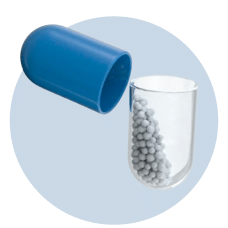Bisoder 2.5mg Tablet
Product introduction
Bisoder 2.5mg Tablet helps improve cardiac output and prevent heart failure progression. It helps regulate blood pressure, enhances blood flow, and supports overall cardiovascular health. This makes it essential to post-myocardial infarction (heart attack) care, ensuring long-term heart protection. It may also be used to relieve the symptoms caused by an overactive thyroid gland.
Your doctor may prescribe Bisoder 2.5mg Tablet as part of a comprehensive heart care plan, often alongside lifestyle modifications like a heart-healthy diet, regular exercise, and smoking cessation. It is important to take Bisoder 2.5mg Tablet exactly as directed by your doctor. Do not stop taking this medication without consulting your doctor, as sudden discontinuation may increase heart risks.
Common side effects of Bisoder 2.5mg Tablet include fatigue, headache, slow heart rate, dizziness, and nausea. These are usually mild and short-lived. It may also cause shortness of breath or low blood pressure in some people. To reduce the risk of side effects, your doctor may start the medicine at a low dose and gradually increase it. Consult your doctor if the side effects bother you or do not go away.
Before taking Bisoder 2.5mg Tablet, let your doctor know if you have any liver problems. It may also not be suitable for people who have a slow heart rate, severe circulation problems, severe heart failure, or low blood pressure. Pregnant or breastfeeding women should also consult their doctor before taking it. Have your blood pressure checked regularly to ensure the efficacy of the treatment. Avoid drinking alcohol as it may increase certain side effects.
Uses of Bisoder Tablet
Benefits of Bisoder Tablet
In Management of Heart Failure
In Treatment of Hypertension (high blood pressure)
In Treatment of Angina (heart-related chest pain)
In Treatment of Arrhythmia
Side effects of Bisoder Tablet
Common side effects of Bisoder
- Nausea
- Headache
- Fatigue
- Constipation
- Diarrhea
- Dizziness
- Cold extremities
How to use Bisoder Tablet
How Bisoder Tablet works
Safety advice
Regular blood pressure monitoring is advisable for dose adjustment.
Bisoder 2.5mg Tablet is started at a lower dose in these patients and further increased slowly with careful monitoring.
What if you forget to take Bisoder Tablet?
All substitutes
Quick tips
- Check your heart rate and blood pressure regularly to avoid excessive drops.
- Do not stop taking the medicine suddenly, as stopping abruptly can worsen heart failure—consult your doctor before making changes.
- Common ones include dizziness, fatigue, and slow heart rate. Consult your doctor if you experience any severe symptoms.
- Combine the treatment with a heart-healthy diet, exercise, and stress management for best results.
- Inform your doctors regarding your treatment with Bisoder 2.5mg Tablet before surgeries or new medications.
Fact Box
Interaction with drugs
Patient concerns
FAQs
Is Bisoder 2.5mg Tablet a diuretic?
Is Bisoder 2.5mg Tablet effective?
What is the best time to take Bisoder 2.5mg Tablet?
What if I forget to take a dose of Bisoder 2.5mg Tablet?
What if I take more than the prescribed dose of Bisoder 2.5mg Tablet?
When will I feel better after taking Bisoder 2.5mg Tablet?
How many hours does Bisoder 2.5mg Tablet take to reduce high blood pressure?
What should I tell my doctor before taking Bisoder 2.5mg Tablet?
Can Bisoder 2.5mg Tablet cause dizziness? How do I prevent it?
What are the most common side effects of Bisoder 2.5mg Tablet?
Is Bisoder 2.5mg Tablet safe in pregnancy?
What other lifestyle changes should I make while taking Bisoder 2.5mg Tablet?
Related ayurvedic ingredients
Disclaimer:
Tata 1mg's sole intention is to ensure that its consumers get information that is expert-reviewed, accurate and trustworthy. However, the information contained herein should NOT be used as a substitute for the advice of a qualified physician. The information provided here is for informational purposes only. This may not cover everything about particular health conditions, lab tests, medicines, all possible side effects, drug interactions, warnings, alerts, etc. Please consult your doctor and discuss all your queries related to any disease or medicine. We intend to support, not replace, the doctor-patient relationship.References
- Westfall TC, Westfall DP. Adrenergic Agonists and Antagonists. In: Brunton LL, Chabner BA, Knollmann BC, editors. Goodman & Gilman’s: The Pharmacological Basis of Therapeutics. 12th ed. New York, New York: McGraw-Hill Medical; 2011. pp. 327-28.
- Benowitz NL. Antihypertensive Agents. In: Katzung BG, Masters SB, Trevor AJ, editors. Basic and Clinical Pharmacology. 11th ed. New Delhi, India: Tata McGraw Hill Education Private Limited; 2009. p. 176.
- Briggs GG, Freeman RK, editors. A Reference Guide to Fetal and Neonatal Risk: Drugs in Pregnancy and Lactation. 10th ed. Philadelphia, PA: Wolters Kluwer Health; 2015. p. 147.
Marketer details
The list of available options shown with the same composition has been prepared upon the advice of registered medical practitioners, pharmacists affiliated with TATA 1MG. TATA 1MG does not promote any pharmaceutical product of any particular company, and all recommendations are based on the medical opinion, advisories from specialist medical and pharmaceutical professionals.
Lab tests offered by us













